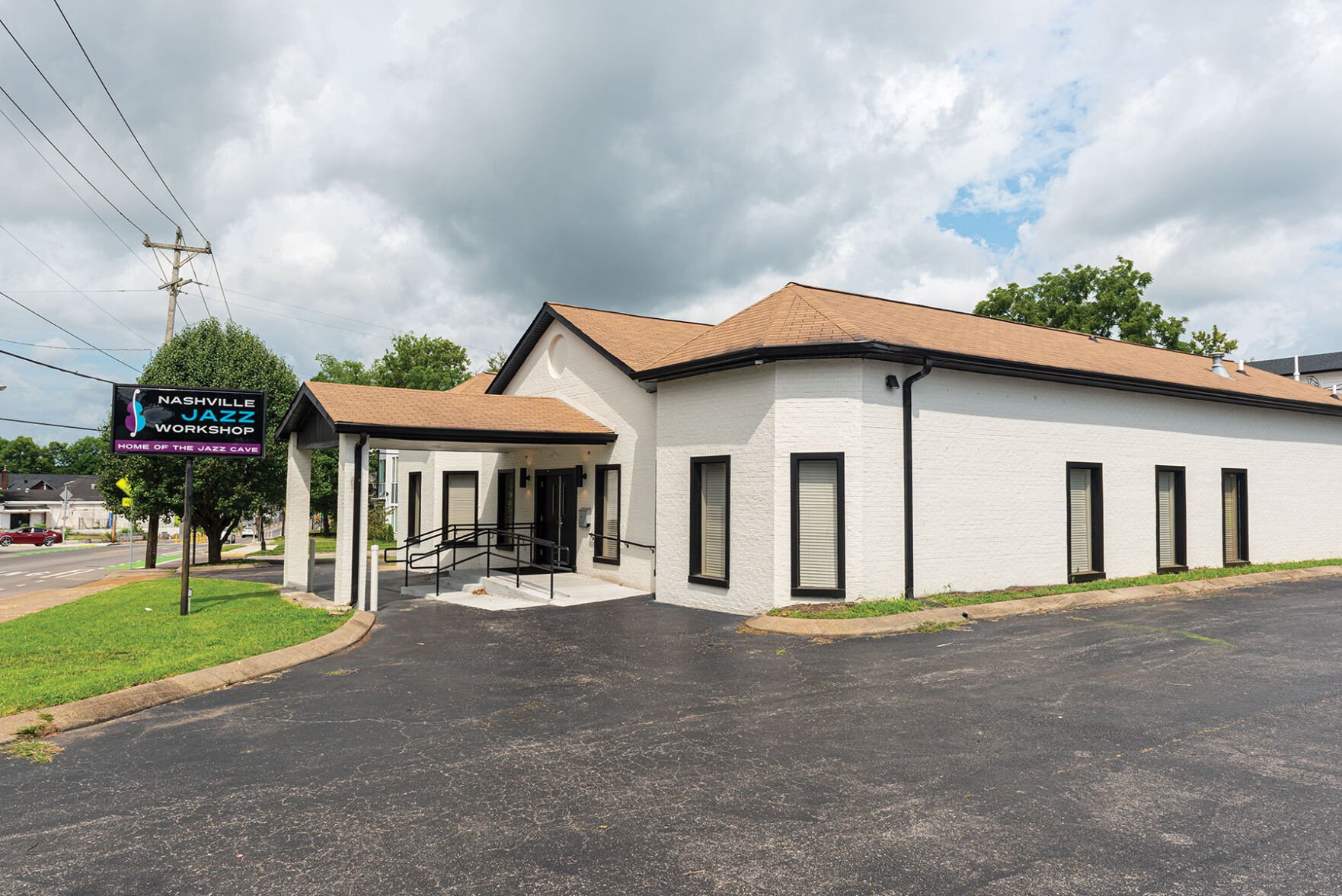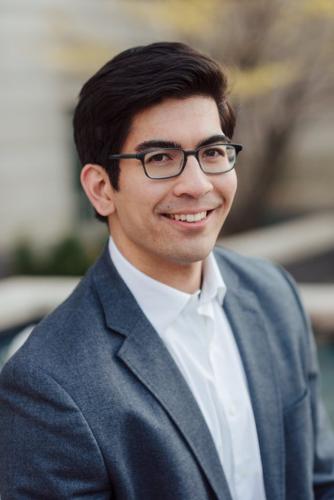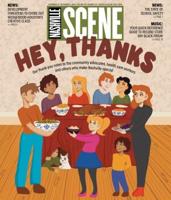
David Rodgers
For more than 25 years, the husband-and-wife duo of bassist Roger Spencer and pianist Lori Mechem have been the driving force behind the Nashville Jazz Workshop. The co-founders and their crew have built the organization’s international reputation for cultivating this deep-rooted tradition in Music City. The Workshop, now comfortably settled in North Nashville at 1012 Buchanan St., emphasizes academic excellence through its host of demanding courses, and provides students opportunities to hone their performance skills and display what they've learned in the classrooms on the bandstand. The Workshop is also the home of the Jazz Cave, a purpose-designed listening room that features topflight concerts from local, regional and national jazz greats.
A highlight of each year at the Workshop is Jazzmania, a fundraising gala that includes an outstanding bill of live music plus live and silent auctions. The theme of this year's Jazzmania — set for Saturday, Oct. 19 at The Factory at Franklin’s Liberty Hall — is “Ritmos de la Noche — A Latin Jazz Celebration,” and the show will feature performances by the 10-piece group Nashville Latin Fusion as well as the rising stars of the Nashville Youth Jazz Ensemble. In addition to celebrating great jazz and helping the Workshop raise money to continue its mission, Jazzmania 2024 is also dedicated to Spencer and Mechem, and formally marks their transition from daily administrative duties to an increased focus on playing, teaching and mentoring.
In July, David Rodgers stepped into the role of artistic director for the Workshop. A pianist and composer, Rodgers has been immersed in the Music City jazz community for a long time. In a quick email catch-up amid preparations for Jazzmania, he shared with the Scene his thoughts on the organization itself, the current climate for jazz in Nashville and more.
What attracted you to the Workshop, and how do you envision your role and duties?
I’ve known about and been involved on some level with the Workshop since I moved to Nashville in 2013. As a freshman at Vanderbilt’s Blair School of Music, I got to know Billy Adair quite well as the pianist in the Blair Big Band before his tragic passing just one semester later in 2014. Billy, of course, was the husband of the late Beegie Adair, a great friend of the Workshop's, and Billy connected me with many of Nashville’s finest jazz musicians in the short time that I knew him — Bruce Dudley, Lori Mechem, Roger Spencer and more — and so I often ended up at the Workshop to attend performances.
Philosophically, I have always believed that, at their core, teaching and performing are intertwined. Thanks to Lori Mechem and Roger Spencer, the Workshop has embodied this mission beautifully for 25-plus years. My role is to continue Lori and Roger’s mission of offering some of the best jazz instruction in Nashville and presenting some of the best creative live music (in the best listening room for it) in Nashville. At the same time, my duty to the Nashville community is to also expand the range of jazz styles heard and taught. I would love to offer teaching opportunities for every artist that performs on our stage. I want everyone in Nashville — especially our immediate neighbors in the Buchanan Arts District — to know about and feel welcomed at the Workshop.
What do you consider the biggest challenge for the Workshop?
On a practical level, funding our free community events has been a challenge. Volatility in once-dependable grants has put us in a really tough spot to be able to continue what we do as a nonprofit organization. We have aspirations to expand on community programming, such as offering one or more free concerts in our facility per month. When Emmanuel Echem’s Jazz in the Park show was moved indoors to our facility this past August because of the heat, we had a record turnout (nearly 100 people). I would love to be able to offer something like that every month.
Will the focus change regarding the types of acts showcased at the Jazz Cave?
Love it or hate it, “jazz” is a word that can mean so many different things to so many different people. Rather than clamp down on an austere definition, I’m more interested in programming our live acts based on the lineage — forwards and backwards — from what many would agree to be “jazz.” That means that many types of jazz, or perhaps more accurately, Black American Music, are represented on our stage in any given month. Ralph T. Lofton, Hammond organist extraordinaire, played recently, bringing gospel music classics to our stage to a wildly supportive audience. Mike Hicks, a soul and R&B artist, has played this year; so has Charles “Wigg” Walker.
Grammy-nominated blues musician Jontavious Willis graced our stage in June; Jon Cowherd, pianist for Brian Blade’s Fellowship Band, made his Nashville debut on our stage this summer. Concurrence conducted a Q&A and short performance in our space to promote their new album Indivisible. Lori Mechem’s quartet is set to play in a few weeks, and we just welcomed Choro das 3, a vibrant Brazilian trio. I could go on and on. The programming this year has been a wide-ranging tapestry of beautiful, creative, improvised music that is certainly fed from many cultural influences. This is what jazz looks and sounds like in 2024, and this is what can be expected to be showcased at the Jazz Cave moving forward.
What changes do you see going forward in the courses being offered?
Lori Mechem and I had a conversation recently, and we both strongly believe that there is no substitute for the Great American Songbook as part of a fundamental jazz education. Of course, there are many ways to learn and many offshoots to pursue. But the Great American Songbook — a canon of compositions that over time have solidified themselves into what we consider standard jazz repertoire — offers an irreplaceable educational model for understanding harmonic, melodic and improvisational concepts. Many of the current classes and ensembles are based on the music from the Great American Songbook, and I have no plans to change that.
At the same time, there is a great opportunity to serve our Nashville music community by listening to their voice when they mention something they’d like to learn. I have taught a contemporary keyboard harmony course in the past that looks at influences from living geniuses such as Cory Henry, Robert Glapser, Herbie Hancock, Jacob Collier, Fred Hersch and Brad Mehldau. We are working on developing music technology courses for musicians interested in learning more about Logic Pro and ProTools; we are developing music business courses that help artists learn more about the role of online technology to help their growth and reach. Similarly to our performance offerings, I think of our role in education as expanding on the excellent foundation set by Lori and Roger, and listening to the feedback from our community.
What is your take on Nashville’s jazz community?
Nashville has some of the best musicians in the world — and I don’t say that naively. I grew up in Los Angeles, I’ve lived in New York City, I’ve toured the world and played at the biggest jazz festivals in Europe. Nashville’s jazz scene can hold its own, and it’s ever-growing. That’s an exciting spot to be in. Even in my 11 years living here, there have been massive changes in the reception of live jazz. More and more people are moving here who have an appreciation for what jazz is and what jazz means. More and more top-tier musicians are moving here who are excited to help build the scene in Nashville. There is an inexplicable energy to live improvised music, and I think it’s becoming more and more known and appreciated here in Nashville.
I also think that the melting pot of styles that are embodied in “Music City” — country music, yes, but also funk, R&B, gospel, pop, and jazz — all come together to inform the musical voice of the local players here in Nashville. There aren’t many “jazz-only” players here. The best players are also playing on country records, touring with pop artists, composing and producing their own music — and I think that’s a unique strength to Nashville’s players. There’s a wide view of what music is and can be here, and when those players are put in an improvisational setting, it’s really fun to listen to.

Nashville Jazz Workshop in 2021, shortly after its move to Buchanan Street
How will this year's Jazzmania differ from past celebrations?
Jazzmania is our big annual fundraiser, so of course there is, on some level, a continuation of what has been done in the past. We depend on the generosity of our incredible patrons to keep our doors open and to continue doing what we do. However, I’m thrilled that this year, we are able to bring Nashville Latin Fusion, led by Cuban American pianist Melvin Macias, to the Jazzmania stage for a celebration of Latin jazz. On the heels of Hispanic Heritage month, it was very important to us that we represent a different sliver of the “jazz pie” this year.
Also joining Nashville Latin Fusion is LatiNashville, a salsa dancing group led by Andy Chea, who will be performing for a couple songs and also offering a free salsa dancing tutorial to those interested. There’s going to be a delicious buffet, an open bar, and Rich Ripani’s Nashville Youth Jazz Ensemble will kick off the live music at 7 p.m. Jazzmania is billed as “the jazz party of the year,” and it’s shaping up to be just that!
Are there misperceptions regarding the Workshop you would like to correct?
For some time, I think the Workshop has been viewed as an exclusive club of sorts — either personally or musically. That couldn’t be further from the truth. Since I became involved this year, it’s been part of my mission for people to know that they are welcome here. I want to figure out how we can involve more of our music community in our various performances. I want to figure out how to expand our roster of teachers. Hopefully, it's evident that we want as many different types of jazz represented on our stage as we can accommodate. I want everyone in Nashville to know about us and attend a show! We want to be as accessible, reachable, and relevant as we can be. I hope that anyone who feels slighted or excluded from the NJW, for whatever reason, will give us a chance to show them that it is a new day here at the Workshop. We hope to see you soon.
What role do you see the Workshop playing in Nashville’s overall cultural climate in the years ahead?
Because of the many communities we serve, I think the Workshop will continue to grow into a central fixture of Nashville’s jazz and music culture in the years to come. Our educational reach will continue to serve students of all ages and levels, from young children at Jazz AM, to older kids at our summer Jazz Camp, to our partnerships with local universities, and adult students who simply love the lifelong pursuit of learning. We have listening classes for non-musicians too. There’s truly something for everyone.
We’ve just scratched the surface with our community programming. Jazz in the Park is a wonderful program, but we’d love to expand on that to make it a year-long endeavor, so that in any given month, our community can enjoy free, top-tier live jazz. Speaking of live jazz, the shows on our stage in the Jazz Cave will continue to showcase the many facets of Music City that are indeed shaped by the people who are moving here. In that sense, we are a reflection of Nashville’s culture, but it is my hope that we can also shape that culture by curating unique listening experiences for musicians and audience members alike. On that note, we have some exciting programming on the horizon for 2025. Stay tuned. Hope to see you around!





